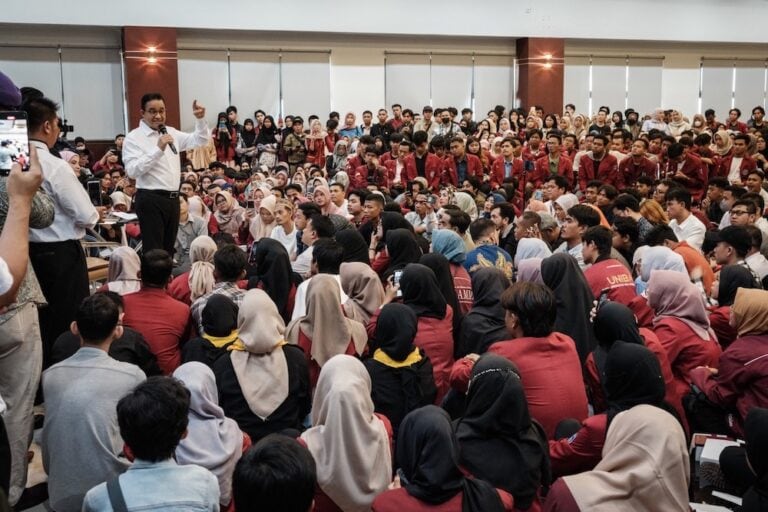(RSF/IFEX) – Reporters Without Borders voiced concern at the Indonesian authorities’ treatment of five Australian journalists, including Channel Seven presenter Naomi Robson, who were arrested, questioned and on the point of being expelled for travelling to Papua, which is closed to the press. “The way in which the Jakarta authorities ban the press from working […]
(RSF/IFEX) – Reporters Without Borders voiced concern at the Indonesian authorities’ treatment of five Australian journalists, including Channel Seven presenter Naomi Robson, who were arrested, questioned and on the point of being expelled for travelling to Papua, which is closed to the press.
“The way in which the Jakarta authorities ban the press from working freely in Papua is utterly scandalous,” the press freedom organisation said. “Every state has the right to protect its sovereignty but to close territory in this way is contrary to Indonesia’s international commitments and to the country’s Constitution, which guarantees freedom of the press and movement,” it said, adding, “We call for restrictions on journalists’ access to Papua to be lifted.”
Police on 13 September 2006 picked up five members of a Channel Seven reporting team – Naomi Robson, Rohan Travis, Peter Andrew, Paul Richard and David John – and then put them under surveillance in Jayapura, after they had entered the province on a tourist visa. The Jakarta government also threatened them with a fine and a ban on visiting Indonesia.
The presenter of the programme “Today Tonight”, Naomi Robson and her team had apparently asked for a visa to prepare a report on the last cannibalistic tribes in Papua.
Immigration officials forced the journalists onto a flight to Jakarta on 14 September, after which they were due to be expelled from the country. Papua police chief, Major-General Tommy Jacobus, told AP, “They admitted being journalists trying to report on the situation here. It is best that we deport them.”
The foreign press has been banned from Papua since 2003. “We believe that Indonesian unity and cohesion would be threatened by an intrusion and a foreign interest,” Indonesian Defence Minister, Juwono Sudarsono, said in February 2006.
The western part of the island of New Guinea, which Indonesia has occupied since 1969, is regularly troubled by separatist demonstrations.


